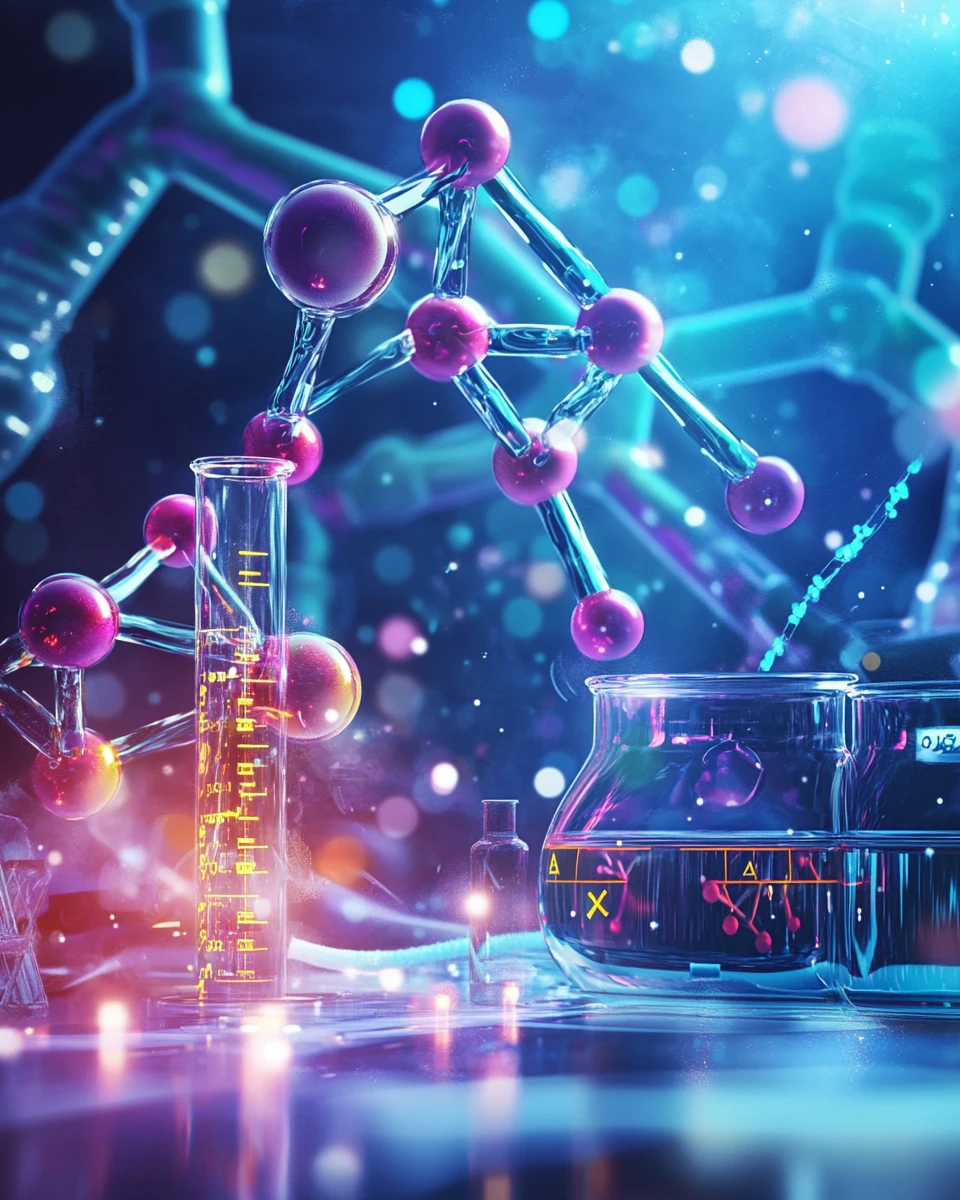

Pantothenic acid, also known as vitamin B5, is a water-soluble vitamin that plays an important role in metabolism.
It is involved in the synthesis of coenzyme A, one of the most important coenzymes involved in the metabolism of carbohydrates, fats and proteins.

Recent studies show that vitamin B5 deficiency can have a significant impact on skin health, the immune system, and other physiological functions.
In this article, we will look at the role of pantothenic acid in the body and its impact on human health.

The role of pantothenic acid in the body
Pantothenic acid is a precursor to coenzyme A, which is involved in over 100 biochemical reactions, including the Krebs cycle, hormone synthesis, and fatty acid metabolism.
Coenzyme A is an important component that helps the body produce energy and manage metabolic processes.
- Carbohydrate Metabolism: Coenzyme A is involved in the oxidation of carbohydrates, which contributes to energy production.
- Metabolism of fats: With the help of coenzyme A, the body processes fats, turning them into energy.
- Hormone synthesis : Coenzyme A is essential for the synthesis of steroid hormones such as cortisol and sex hormones.

Effect of pantothenic acid on skin health
One of the most notable effects of vitamin B5 is its impact on skin health.
Pantothenic acid has a favorable effect on wound healing and inflammation, and may also help treat acne and other skin conditions.
- Support skin healing: Studies have shown that vitamin B5 promotes skin cell regeneration, speeding up the healing process.
- Acne Treatment: Some studies indicate the effectiveness of pantothenic acid in reducing rashes and inflammation characteristic of acne.

Pantothenic acid deficiency and its consequences
Pantothenic acid deficiency can cause a number of serious problems, including fatigue, depression, nervous system disorders, and skin problems.
- Deficiency Symptoms: Deficiency symptoms may include fatigue, depression, joint pain, dry skin, acne and other manifestations.
- Effect on Nervous System Health: Pantothenic acid is involved in the synthesis of neurotransmitters that are essential for normal nervous system function.

Sources of pantothenic acid
Pantothenic acid is found in a large number of foods such as:
- Meat (especially liver)
- Fish
- Eggs
- Avocado
- Nuts and seeds
- Vegetables (especially broccoli, potatoes)

Recommended doses of pantothenic acid
The average daily requirement of pantothenic acid for an adult is about 5 mg.
To maintain normal levels of the vitamin in the body, it is important to include foods rich in this vitamin in the diet or use supplements if necessary.
Table 1. Pantothenic acid content in some foods
| Product | Pantothenic acid content (mg per 100 g) |
|---|---|
| Beef liver | 8,9 |
| Fish (salmon) | 1,5 |
| Avocado | 1,5 |
| Eggs | 1,4 |
| Broccoli | 0,6 |
| Potatoes | 0,3 |
Understanding which foods contain pantothenic acid can help you effectively plan your diet and prevent deficiencies of this important vitamin.
Including foods such as liver and fish in the diet can significantly support normal metabolic function.

How pantothenic acid keeps your skin healthy
In addition to metabolic activity, pantothenic acid has a number of cosmetic advantages.
Its use in skin care products has become popular due to its ability to accelerate skin healing, reduce inflammation and maintain a healthy epidermis.
Vitamin B5 is an essential part of modern cosmetology, especially in the treatment of skin conditions such as acne.
Studies show that pantothenic acid supplements can help reduce inflammation and rashes, as well as speed up the skin’s recovery from various injuries.
Table 2. Symptoms of pantothenic acid deficiency
| Symptom | Description |
|---|---|
| Fatigue | A feeling of constant fatigue and weakness. |
| Skin problems | Dry skin, acne, delayed wound healing. |
| Depression | Low mood, apathy. |
| Nervous system disorders | Anxiety, insomnia, nervousness. |
Conclusion
Pantothenic acid is an essential element for maintaining the normal functioning of the body, especially in the context of metabolic processes and skin health.
Regular consumption of foods containing vitamin B5 helps to maintain energy, improve skin health and normalize the nervous system.
List of references
- Stipanuk, M.H., & Caudill, M.A. (2018). Biochemical and Physiological Aspects of Vitamin B5. Elsevier.
- Brown, M.A., & Ellis, M.A. (2020). Pantothenic Acid: A Key Factor in Skin Health. Journal of Dermatological Research, 72(4), 457-462.
- Nakamura, T., & Matsui, H. (2019). Effects of Vitamin B5 on Acne Vulgaris: A Systematic Review. International Journal of Dermatology, 58(3), 245-250.
- Rucker, R.B., & Fick, S.C. (2017). Nutritional Deficiencies in the Modern World. Nutrition Reviews, 75(7), 519-531.




